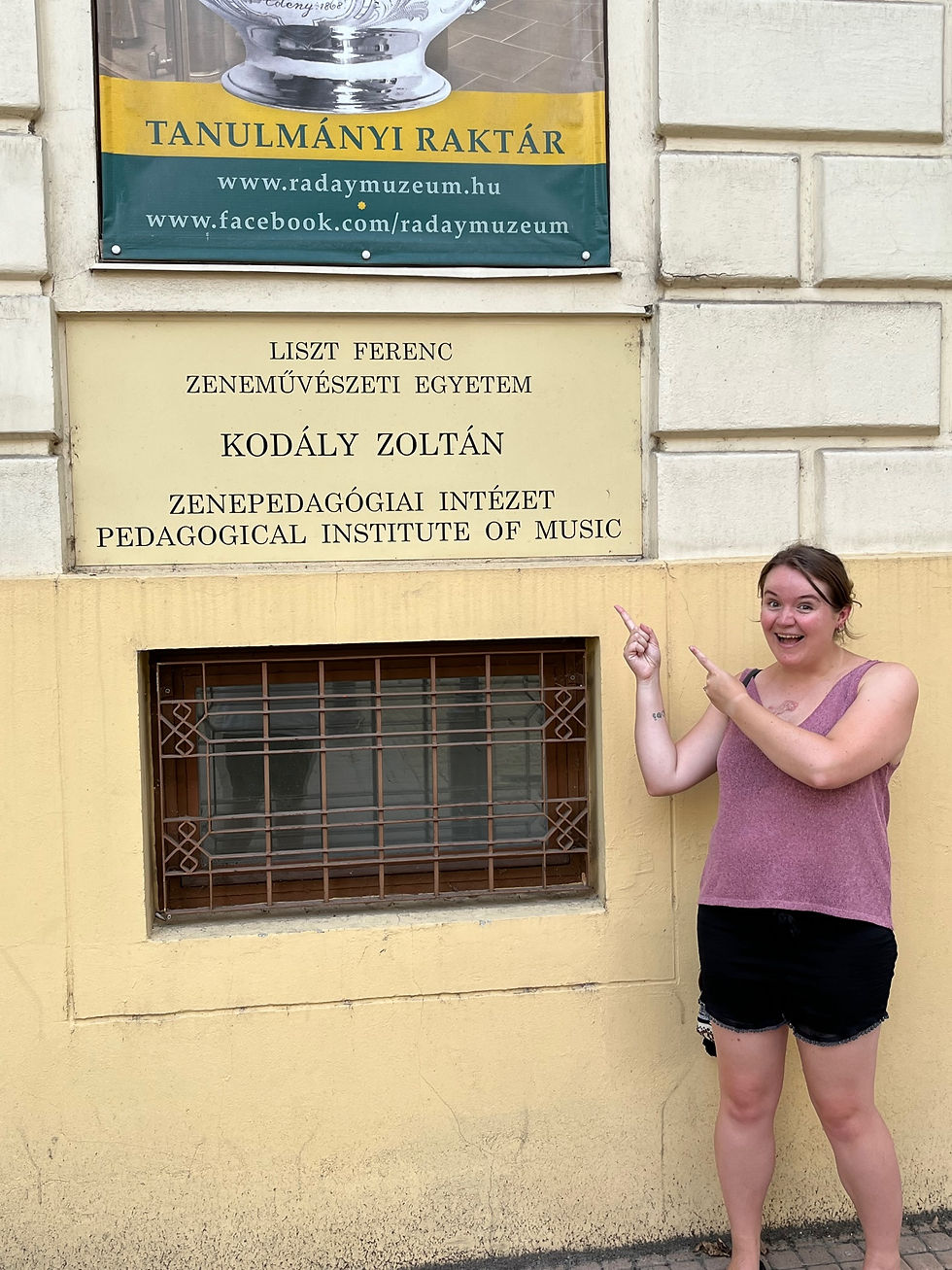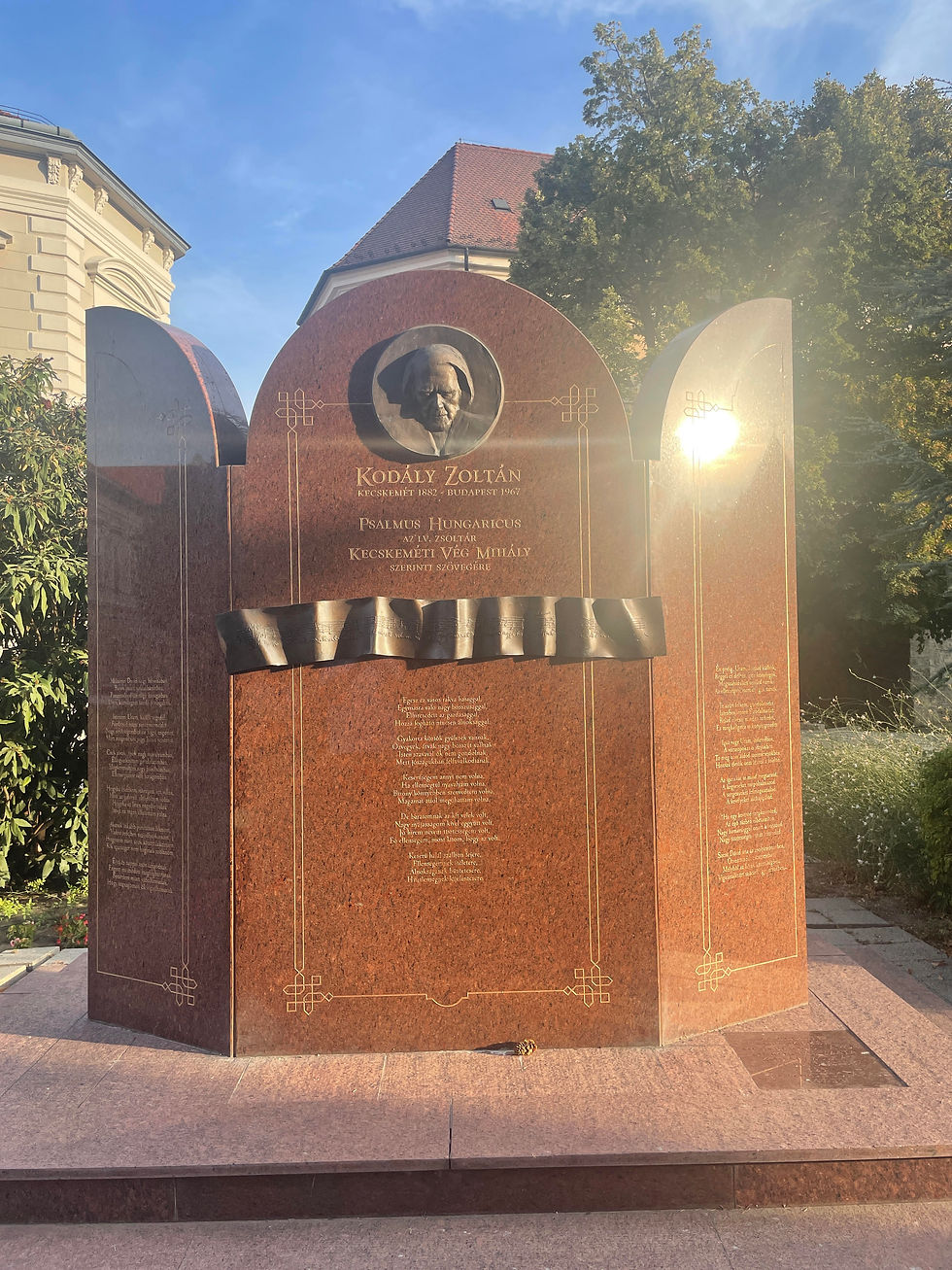The Kodaly Institute, Kecskemet
- Jenny Ferris
- Sep 25, 2022
- 3 min read
This year I have the absolute pleasure of attending the Kodály Institute in Kecskemét, Hungary to complete a Diploma of Kodály Studies.

It has been an ambition of mine for a number of years and I am so thrilled to finally be here!

The Kodály Institute was established in 1975 in an old Franciscan monastery in the town of Kecskemét - Zoltan Kodály's birthplace. It is here that students from all over the world flock to learn more about Kodály's educational philosophy, his writings, the teaching methodology associated with this and also to develop and grow as musicians themselves.
It is a highly regarded and comprehensive musical education.
So what can you expect to learn at the Kodály Institute?
I have written before about the Kodály philosophy and how the sequence of prepare, present, practise works in the classoom. At the Institute, this is just one component of the topics covered!
There are discussions about Kodály's lifework and writings, examining the development of his educational philosophy and also looking at the social/political/historical contexts in which he was living and working and the ways in which these may have influenced his beliefs.

There are detailed methodology subjects where we unpack the teaching methodology laid out by Kodály and his contemporaries.
There are classroom observations, where one can observe this methodology playing out in a real-world setting (this is such a joy, as often when we attend workshops we are working with other adults, and particularly other music teachers, so there is always an artificial element to the lesson. However seeing a lesson taught to actual children is even more effective!)
There are also Music History and Folk Music classes to round out our contextual understanding of music.
In addition to the teaching components of the course, there are a lot of subjects devoted to improving one's own musicianship and musical skills.
Multiple times a week, we attend Solfége classes (musicianship) in which we improve our listening skills, work on in-tune singing, complete rhythmic and melodic dictations, perform sing & plays at the piano and grow as musicians.

Each student receives a private piano lesson, singing lesson and score-reading (sight reading) lesson each week.
There is an opportunity to participate in chamber music ensembles, allowing your instrumental background to flourish (there can be a focus on voice and piano in other subjects, but here my background as a horn player is allowed to shine)
Students take part in choir rehearsals and conducting classes too.
In addition to this absolute smorgasbord of classes, there are a number of electives on alternative teaching pedagogies such as Kokás or the Zenézen piano method and specialisations in choral conducting or piano pedagogy.
So if that rich educational mixture isn't enough to tempt you - why else should you attend the institute?
Many students who attend have already had some exposure to Kodály music education in their home country and view this as the next step in their journey as musicians and music educators. There is a sense of "returning to the source" - to see the original Hungarian educational context in which Kodály was living and working and to better understand the differences between that context and their own educational context in order to better adapt the approach back home.
It's also very appealing to have a full year to dedicate to improving your own musical abilities!
In addition to their Bachelor, Masters and non-degree programs, the Institute also offers short courses and the Summer Seminar each year.
Kecskemét is calling, what are you waiting for?




Comments